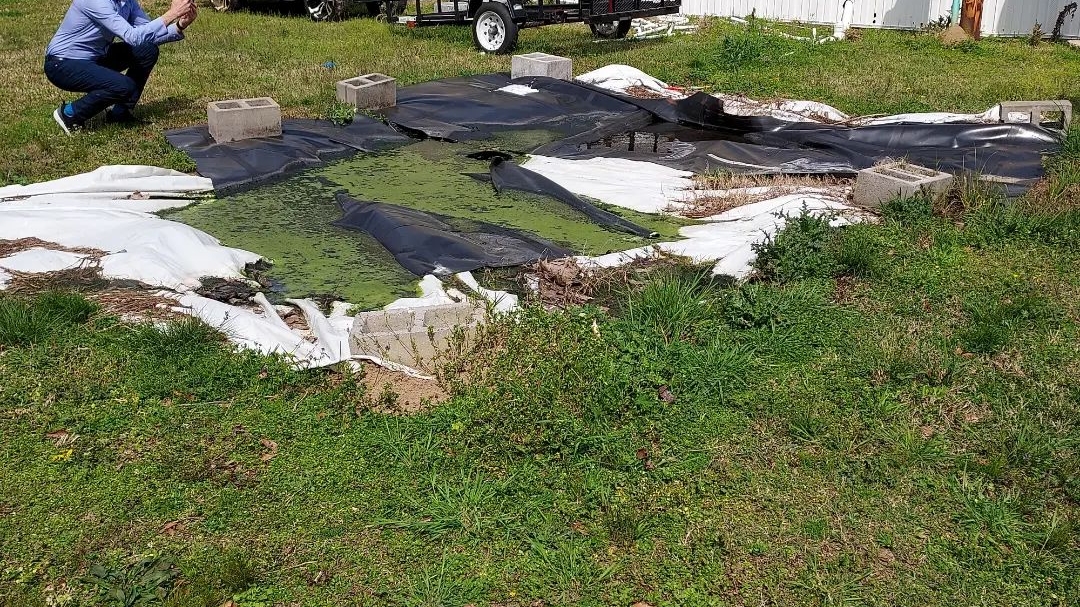The Departments of Justice and Health and Human Services (HHS) announced Thursday an interim resolution agreement in their environmental justice investigation into the Alabama Department of Public Health and the Lowndes County Health Department (collectively ADPH) in Lowndes County, Alabama. ADPH cooperated throughout the investigation and agreed to the interim resolution agreement that puts ADPH on a path forward towards ensuring the development of equitable and safe wastewater disposal and management systems in Lowndes County.
In November 2021, Justice Department and HHS launched an investigation into whether ADPH’s conduct violates Title VI of the Civil Rights Act of 1964 (Title VI) and Section 1557 of the Affordable Care Act (Section 1557). Title VI prohibits recipients of federal funds from discriminating on the basis of race, color or national origin in their federally funded programs and activities. Section 1557 provides that an individual shall not be excluded from participation in, denied the benefits of or subjected to discrimination under, any health program or activity, any part of which is receiving federal financial assistance, based on the grounds prohibited under Title VI.
The nearly eighteen-month investigation revealed areas of concern in ADPH’s operations and compliance with Title VI and Section 1557. Specifically, the investigation revealed that ADPH’s enforcement of sanitation laws threatened residents of Lowndes County with criminal penalties and even potential property loss for sanitation conditions they did not have the capacity to alleviate. The investigation also revealed that ADPH engaged in a consistent pattern of inaction and/or neglect concerning the health risks associated with raw sewage. The investigation revealed that despite ADPH’s awareness of the issues and the disproportionate burden and impact placed on Black residents in Lowndes County, it failed to take meaningful actions to remedy these conditions.
“Today starts a new chapter for Black residents of Lowndes County, Alabama, who have endured health dangers, indignities and racial injustice for far too long,” said Assistant Attorney General Kristen Clarke of the Justice Department’s Civil Rights Division. “Our agreement puts Lowndes County on a path to long overdue reform as the state now takes steps necessary to provide access to basic sanitation services, end exposure to raw sewage and improve health outcomes for marginalized communities. This agreement marks the first environmental justice settlement ever secured by the Justice Department under our civil rights laws. Our work in Lowndes County should send a strong message regarding our firm commitment to advancing environmental justice, promoting accountability and confronting the array of barriers that deny Black communities and communities of color access to clean air, clean water and equitable infrastructure across our nation.”
“Environmental justice is a public health issue, and where you live should not determine whether you get sick from basic environmental hazards not faced in other affluent and white communities,” said Director Melanie Fontes Rainer of the HHS Office for Civil Rights. “We are pleased that Alabama’s Public Health Department has committed to take immediate and long-term steps to protect the health of Lowndes County residents. This community has long been at the heart of the civil rights struggle, and today’s resolution is yet another testament to the ongoing work that is the pursuit of racial justice.”
“This agreement creates a path towards sustainable sanitation solutions,” U.S Attorney Sandra J. Stewart for the Middle District of Alabama. “The measures required in the agreement will improve public health and the environment for the residents of Lowndes County. My office is proud to support the community and the parties in reaching these important goals.”
Under the agreement, ADPH has agreed to take a number of actions to address public health in Lowndes County including:
• Suspending Criminal Penalties and Liens: ADPH will suspend enforcement of sanitation laws that could result in criminal charges, fines, jail time and potential property loss for residents in Lowndes County who lack the means to purchase functioning septic systems. ADPH will ensure that Lowndes County residents are informed about the suspension of the criminal penalties and liens.
• Examining Public Health Risks within Lowndes County: ADPH will coordinate with the Centers for Disease Control and Prevention (CDC) to measure the level of health risks different populations experience from raw sewage exposure. ADPH agrees to work collaboratively with the CDC and adopt any public health recommendations provided by the CDC.
• Launching a Public Health Awareness Campaign: ADPH will develop a public health awareness campaign using radio, print ads, flyers, mailers, door-to-door outreach and other appropriate ways to ensure residents receive critical health and safety information related to raw sewage exposure.
• Providing Public Health Educational Materials for Lowndes County Health Care Providers: ADPH will create or supplement education materials for health care providers for Lowndes County residents, including school-based health centers and community-based organizations, to provide more information on symptoms and illness related to raw sewage exposure.
• Conducting Assessment to Determine Appropriate Septic and Wastewater Management Systems: ADPH will conduct a comprehensive assessment to determine the appropriate septic and wastewater management systems for homes within Lowndes County and use that information to prioritize properties to receive systems based on risk of exposure to raw sewage. ADPH cannot use this information for criminal penalties or liens.
• Creating a Sustainable and Equitable Public Health and Infrastructure Improvement Plan:Within one year, ADPH will create a plan to improve access to adequate sanitation systems and address public health risks associated with raw sewage exposure.
• Consistently Engaging with the Community: In carrying out each aspect of the interim resolution agreement, ADPH will consistently engage with community residents, local government officials, experts in wastewater, infrastructure, soil and engineering and environmental justice advocates. ADPH must also engage with community stakeholders on at least a quarterly basis regarding its progress in creating and implementing the final Public Health and Infrastructure Improvement Plan.
As a result of ADPH’s decision to enter into this interim voluntary resolution agreement, the departments have agreed to suspend their investigation. Under Title VI, the Justice Department is required to informally resolve an investigation that indicates noncompliance. If ADPH does not comply with the agreement, the departments will reopen their investigation.
Addressing discriminatory environmental and health impacts through enforcement of the nation’s civil rights laws is a top priority of both the Justice Department and HHS. Today’s announcement comes one day prior to the one-year anniversary of the Justice Department’s launch of its Office on Environmental Justice and its Comprehensive Environmental Justice Enforcement Strategy.
The Civil Rights Division’s Federal Coordination and Compliance Section and the HHS Office for Civil Rights conducted this investigation jointly with the support of the U.S. Attorney’s office in the Middle District of Alabama.
Individuals who believe their civil rights have been violated can file a complaint with the Civil Rights Division at www.civilrights.justice.gov/report/. Additional information about the Office for Civil Rights is available on its website at www.hhs.gov/ocr. If you believe that you have been discriminated against in programs or activities that HHS directly operates or to which HHS provides federal financial assistance, you may file a complaint for yourself or someone else at: www.hhs.gov/civil-rights/filing-a-complaint/index.html






















































